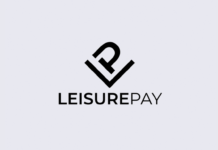By Karl Timmins
The focus of this article will be on blockchains that are utilising distributed ledger technology to improve and innovate industries such as the charitable community, the renewables sector and the environmental industry. While these sectors often come with a pre packed cliche, they are traded areas within the larger fully adopted general financial market. The significance of how these two markets will begin to correlate into the future is something that a lot of resource is being directed within the financial sector, however while interesting, that is the topic of another discussion.
There are many projects which caught attention when focusing on charitable & renewable resources and which projects utilise blockchain technology to enhance and improve these markets. One most notable was –
‘WePower’ (WPR). Wepower hold offices in Australia, Spain, Estonia & Lithuania focusing on a ‘green energy revolution’ and began trading on the 9th of February 2018 (to much positive market response) however more recently has pulled back in line with many other assets.
Another notable blockchain in this sector is –
‘Power Ledger’ (POWR) focusing on renewable solar energy and how surplus energy can be traded for ‘POWR tokens’ which provides a return on your solar based power investment. As solar based electric power becomes more and more a part of everyday life and (in certain parts of the world) with the introduction of projects such as the ‘Tesla Solar roof’ solar power generation and the trading of surplus will become a part of household power systems (utilising this technology) allowing for reductions to electricity costs. Further focus and research should be given to projects which fall into this sector.
Within the charitable sector there are many established and currently operating blockchains which are worth mention. Through 2017 and 2018 in conflict areas blockchain technology has aided in providing essential relief, particularly to Syrian refugees during the recent cataclysm which has engulfed the country and surrounding areas.‘
GoHelpFund’(HELP) is a project which aims to crowd source funding for essential projects in need across the globe. Whether it be a water purification project or funding for schools or hospitals ‘GoHelpFund’ provides a platform for these projects to get an initial foothold. Masternode operation is available on the network for 2,500 HELP tokens with provides a 50% block reward with further scaling up to 25,000 HELP tokens for an ‘Entity Masternode’ which enables further governance votes on the network.
A coin that has also caught recent attention is –
‘Help The Homeless Coin’ (HTH) a registered Nonprofit in New Jersey, USA, which began trading on the Crypto-Bridge exchange on July 10th and provides 15% of all block rewards to partnered charitable organisations. An issue many have with charitable organisations and relief projects is a lack of transparency. This can cause many to take the view that donations are not being put to the most effective use.
Enter ’Alice’ which is a social funding and impact management platform built on Ethereum aiming to ‘bring transparency to social funding’ and has been in operation since 2016. Donators can track project completion through live data and identify and scale projects which are in a position to provide the required assistance. This can also be of benefit to contributors when identifying projects which are not in a position to provide the assistance identified initially.
Being that distributed ledger technology provides (among many other services) a method to source funding on a global scale quickly, efficiently and if required anonymously; blockchain tech and the wide scale implementation of smart contracts will provide cost reductions allowing for extra funds to be put to use for projects on the ground. An example that was recently brought to my attention was the funding of Equal Rights activists in countries which do not support this cause. Punishment for the support of certain human rights is unfortunately still rife within certain areas and donations submitted anonymously provide much needed relief aid to people in these regions of the world who cannot for fear of persecution publicly fundraise, donate or receive donations through the previously conventional methods. Distributed ledger technology and the projects focused on implementing this technology allow for greater involvement in areas previously unreachable to the wider community.















